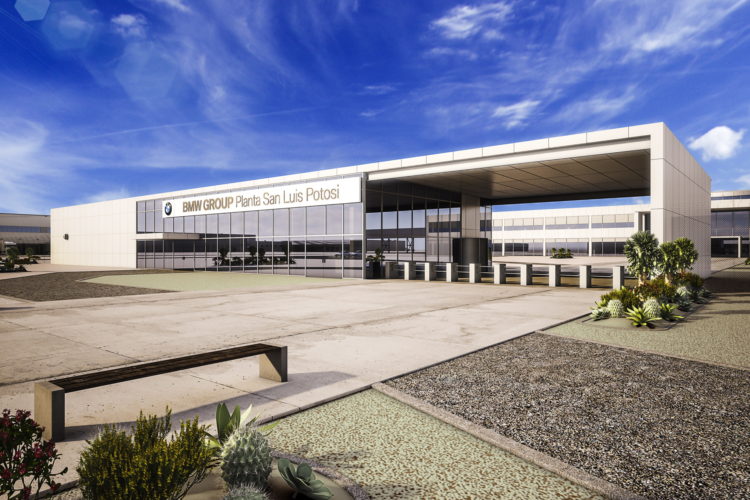BMW’s Spartanburg, South Carolina plant has been around for 22 years. In recent years, it’s become one of the largest BMW factories in the world. However, in doing so, it’s a bit less streamlined in its supply chain. Being that the Bavarians are building a new plant in San Luis Potosi, Mexico, they are looking to develop a more streamlined approach to supply from the beginning and create a new, state-of-the-art North American supply base.
According to Oliver Zipse, BMW board member of production, “We will see all the latest state of the art here,”. Beginning in 2019, BMW will start making the next-generation 3 Series in this new factory and it will be capable of producing any rear-wheel drive based BMW moving forward if need be. According to Zipse, the new San Luis Potosi will be able to produce up to 150,000 cars annually, with room for expansion. Everything from body shops to paint shops and assembly lines will be available at the Mexico plant, though metal stamping will be outsourced.
This new Mexico factory will also be designed with parts and supplies coming in at one end of the plant, as opposed to the multiple “finger” approach in Spartanburg. This makes things easier, logistically, for plant workers to get the supplies they need and build BMWs. “You will have a substantial amount of direct assembly, where trucks end up at the delivery line,” said Zipse.

The San Luis Potosi plant will also be located near a industrial park that supplies many components to a GM facility also nearby. So BMW will be able to take advantage of this, again making things easier, logistically. Spartanburg didn’t have that luxury when it first opened, so this should help get the plant operating at full capacity quickly.
Now, before anyone starts complaining about Mexican build quality, BMW is confident that quality will remain the same. A comforting reassurance is the fact that both Audi and Mercedes-Benz will have already opened factories in Mexico to build certain SUVs and crossovers by the time BMW’s plant opens. So clearly, other brands are confident as well. Mexico may have never had any premium car manufacturing plants before, but BMW sees no reason why it can’t happen, especially considering how many parts BMW has already been buying from Mexico.
About 120 suppliers that BMW currently use have locations in Mexico and exported nearly $2.5 billion worth of parts to BMW plants worldwide just last year. So if you own a brand-new BMW, odds are there are some Mexican-made parts on your car.

However, one issue that might arise with BMW building vehicles in Mexico is the bottleneck of Mexico’s resources. Currently, the countries shipping ports are running near full capacity and many of the harbors are full. This is only going to get worse when more automakers start opening shop. So BMW is working with the Mexican government on new infrastructure to try and remedy this problem. Mexico is becoming one of the world’s largest manufacturer of automobiles, so this will only help the country.
All in all, BMW is looking to invest around $1 billion into this San Luis Potosi plant. This shows how serious BMW’s commitment to this plant is, as it’s going to be a colossal undertaking. It requires not only money, but a lot of logistical changes and supply-chain changes. However, if BMW can successfully pull it off, it will pay enormous dividends in the future.
Source: http://www.bmwblog.com/




